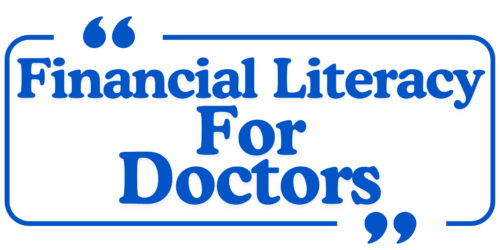Module 1: Introduction to Budgeting
- Target Audience: All doctors
- Duration: 1 hour
Objectives:
- Understand the importance of budgeting for financial health.
- Learn about different budgeting methods.
Topics Covered:
- Definition of budgeting
- Benefits of budgeting
- Overview of budgeting methods (zero-based, envelope, 50/30/20 rule)
Module 2: Budgeting for New Doctors
- Target Audience: New doctors (residents, fellows, early-career physicians)
- Duration: 2 hours
Objectives:
- Develop a realistic budget based on a new doctor’s financial situation.
- Identify common expenses and income sources.
Topics Covered:
- Analyzing income sources (salary, stipends, etc.)
- Understanding common expenses (student loans, housing, utilities, insurance)
- Creating a budget using the 50/30/20 rule
- Tools and apps for budgeting (Mint, YNAB, etc.)
- Importance of emergency funds and saving
Activities:
- Create a personal budget using templates provided.
Module 3: Budgeting for Mid-Career Doctors
- Target Audience: Mid-career doctors (attending physicians, specialists)
- Duration: 2 hours
Objectives:
- Review and adjust existing budgets to accommodate lifestyle changes.
- Plan for long-term financial goals.
Topics Covered:
- Analyzing changes in income and expenses (salary increases, family planning)
- Investing for retirement (401(k), IRAs, pensions)
- Saving for children’s education
- Managing debt (student loans, mortgages, credit cards)
- Strategies for maximizing tax efficiency
Activities:
- Conduct a budget review and adjustment exercise.
- Set financial goals for the next 5-10 years.
Module 4: Budgeting for Experienced Doctors
- Target Audience: Experienced doctors (senior practitioners, retirees)
- Duration: 2 hours
Objectives:
- Evaluate and adapt budgets for retirement planning.
- Understand the complexities of wealth management.
Topics Covered:
- Adjusting budgets for retirement income (Social Security, investments)
- Planning for healthcare costs in retirement
- Estate planning and its financial implications
- Philanthropic giving and its impact on budgeting
- Understanding and managing financial risks
Activities:
- Create a retirement budget using projections for income and expenses.
- Discuss estate planning strategies with hypothetical scenarios.
Module 5: Integrating Technology into Budgeting
- Target Audience: All doctors
- Duration: 1 hour
Objectives:
- Learn how to utilize technology and financial tools for effective budgeting.
Topics Covered:
- Overview of budgeting apps and software
- Digital banking and tracking expenses
- Utilizing financial planning software (Personal Capital, Quicken)
- Setting up automatic savings and investment contributions
Activities:
- Hands-on workshop: Setting up a budgeting app or software.
Module 6: Real-Life Budgeting Scenarios
- Target Audience: All doctors
- Duration: 1 hour
Objectives:
- Apply budgeting knowledge to real-life scenarios.
Topics Covered:
- Case studies: Common budgeting challenges faced by doctors
- Group discussions on solutions and strategies
- Role-playing exercises for financial decision-making
Activities:
- Group presentations on case studies and proposed budgeting solutions.
Conclusion and Certification
Upon completing all modules, participants will receive a certificate of completion. This curriculum aims to equip doctors with the knowledge and skills necessary to effectively manage their finances through budgeting, ultimately leading to greater financial security and peace of mind.
This curriculum can be offered as in-person workshops, online courses, or a combination of both to accommodate the busy schedules of doctors at all stages of their careers.
